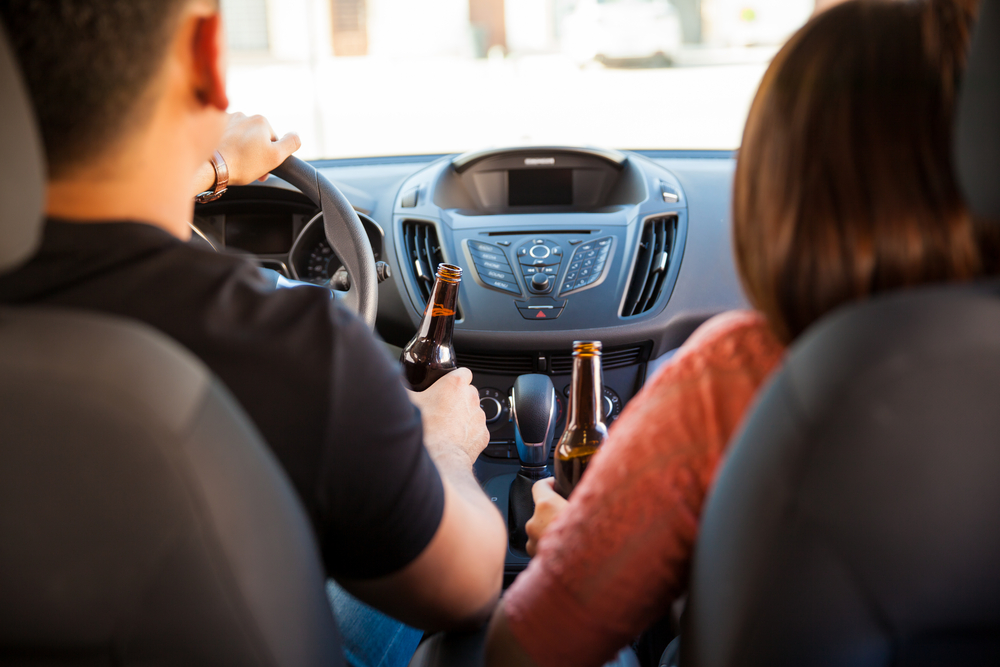CAN THE POLICE ORDER FIELD SOBRIETY TESTS AFTER A DRIVER ADMITS TO DRINKING?
The Court of Appeals for the State of Ohio has recently held that police cannot ask a driver to step out of his car and perform field sobriety tests if an officer only observes (1) an odor of alcohol, and (2) the driver admits to drinking a few beers earlier in the day. State v. High, 2017-Ohio-8264.
In High, the physical control charge was thrown out because the court found no reasonable suspicion for the officer to require field sobriety tests. Drinking and driving is not illegal – drinking while impaired by alcohol is illegal. If an officer can point to facts establishing only that a driver has been drinking – not that he is likely impaired – there is no reasonable suspicion that he has committed a crime. Therefore, the officer cannot based on those factors alone ask the driver to perform field sobriety tests or to arrest him or physical control.

Officer Approaches Man Sitting in His Truck, Smells An Odor of Alcohol
In the High case, an officer was dispatched to a home because the man who lived there had threatened suicide. He arrived along with two other officers and found that the man’s daughter and her husband, the Defendant, also had responded to the scene. Defendant sat in the driver’s seat of his truck with the engine running while his wife entered her father’s home. An officer then spoke with him and asked him to turn off his engine.
Defendant complied, but remained in the truck. Meanwhile, his wife, who was intoxicated, became disruptive and was asked to return to the truck and leave. Before she did so, the officer who had spoken with Defendant notified his sergeant that Defendant also appeared to have been drinking.
When the sergeant spoke with Defendant, he immediately detected the odor of alcohol on his breath. Defendant admitted that he had “a few beers” earlier that evening, so the officer asked him to step out of the vehicle.
The officer then performed field sobriety tests and observed multiple clues on each of the three tests he performed. Subsequently, Defendant completed a breathalyzer test and was found to have a blood alcohol content over the legal limit.
Defendant was charged with having physical control of a vehicle while under the influence of alcohol, in violation of R.C. 4511.194(B)(1) and (B)(2). He filed a motion to suppress, held a hearing and the trial court suppressed the stop. The prosecution appealed.
Officer Must Be Able to Point to Specific Clues Leading Him to Believe That a Driver is Impaired in order to Ask the Driver to Perform Field Sobriety Tests
“Police officer does not need probable cause to conduct a field sobriety test; rather, he must simply have a reasonable suspicion of criminal activity.” State v. Slates, 9th Dist. Summit No. 25019, 2011-Ohio-295. An officer needs to observe the scene, and if he believes that if all of the clues lead him to reasonable believe that a driver is impaired by alcohol or drugs, then the officer may ask the driver to exit the vehicle to perform field sobriety tests. State v. Osburn, 9th Dist. Wayne No. 07CA0054, 2008-Ohio-3051
The arresting officer in High indicated that he believed he had reasonable suspicion to have the Defendant exit his vehicle based on the fact that he smelled alcohol coming from the Defendant, and the Defendant’s own admission that he had consumed alcohol before driving.
The arresting officer did not state that the Defendant had bloodshot or glassy eyes, that the Defendant’s speech was slurred, or that he drove erratically.
Court of Appeals Found An Odor of Alcohol and Admitting to Drinking a Few Beers is Not Enough to Establish Reasonable Suspicion
Even a mild odor of alcohol can provide reasonable suspicion for field sobriety testing when there are also other factors present, such as: a traffic infraction, bloodshot eyes, and an admission to having consumed two beers. See State v. Tomko, 9th Dist. Summit No. 19253, 1999 Ohio App. LEXIS 5133, *8-9 (Nov. 3, 1999).
But here, the only factors present were: (1) an unspecified odor of alcohol (there was no testimony saying whether the oder was mild or strong), and (2) an admission to having had a few beers.
“For better or worse, the law prohibits drunken driving, not driving after a drink.” State v. Taylor, 3 Ohio App.3d 197, 198 (1st Dist.1981).
Likewise, it is only a crime to be in physical control of a vehicle while under the influence. R.C. 4511.194(B)(1). The fact that Defendant had been drinking was not alone enough to subject him to field sobriety testing.
If he truly suspected the Defendant was impaired, the officer should have substantiated his hunch by asking additional questions. Likewise, if there was other evidence, it was the prosecutor’s duty to present it — and they didn’t do that here.
Based on the record, the appeals court agreed that the State failed to produce enough evidence to show that the officer possessed “‘specific and articulable facts indicating that [Defendant] [was] committing a criminal act.’” Osburn, 2008-Ohio-3051, at ¶ 9, quoting Engler, 1999 Ohio App. LEXIS 5993, at *9.



